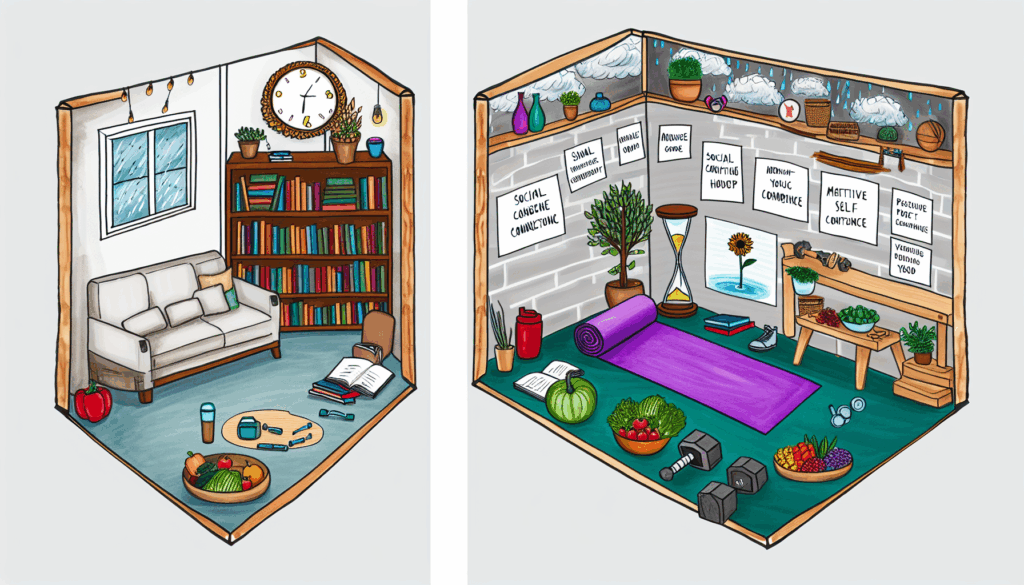Boosting Mental Resilience: Techniques for Nurturing Emotional Health at Home
As the world around us continues to change at an unpredictable pace, the importance of strong mental and emotional health has become unmistakably clear. For those managing health at home, the need for mental resilience is even more important. Fortunately, there are a number of effective techniques which, when practiced routinely, can nurture emotional health and equip us all with the tools to navigate the complexities of everyday life.
1. Practicing Mindfulness:
Mindfulness is a mental state that focuses on the present moment, acknowledging and accepting one’s feelings, thoughts, and sensations. It is a potent tool that helps us to disconnect from chaotic thoughts, manage stress, and improve emotional wellbeing. Whether it’s a few minutes of deep, controlled breathing or a longer period of meditation, mindfulness practices can play a transformative role in promoting mental resilience.
2. Maintaining Social Connections:
Building and maintaining strong relationships with friends, family, and community can have profound effects on one’s mental health. Even for those primarily homebound due to health issues, technology has made it easier than ever to keep connections alive. Regular video calls, online groups, and social media interactions can provide a sense of belonging that bolsters psychological resilience.
3. Staying Physically Active:
Physical and mental health are deeply intertwined, meaning regular exercise can play a vital role on the path to mental resilience. For those with limited mobility, exercises such as seated yoga, gentle stretching, or lightweight lifting can be beneficial in maintaining physical wellness and promoting mental strength.
4. Crafting a Healthy Diet:
What we put into our bodies plays a crucial role in how we feel mentally. A diet full of fruits, vegetables, lean proteins, and complex carbohydrates can provide the nutrients vital for brain health. Hydration is also fundamental. Nutrition can impact mood, energy, and mental clarity, reinforcing the need for careful attention to our diet.
5. Adopting a Positive Self-talk:
Many of us have an internal dialogue, which much of the time is subconsciously affecting our mood. Ensuring this “self-talk” is generally optimistic and encouraging can greatly enhance our mental resilience. A shift toward self-compassion and gratitude is an excellent way to harness this.
6. Accepting Change and Letting Go of Control:
Life is unpredictable and change is inevitable. Learning to let go of the need to control every circumstance is key in the development of emotional resilience. By focusing on things that we can control and embracing flexibility, we can navigate change in a healthy, positive way.
Implementing techniques that bolster mental health can greatly improve our overall well-being, particularly for those focused on managing health from home. It’s always essential, however, to reach out to a healthcare professional if the need for support is apparent. After all, our mental health deserves as much attention and care as our physical health.
Remember: everyone’s journey towards mental resilience looks different. What’s important is taking those first steps and remembering, you’re never alone in this journey.



